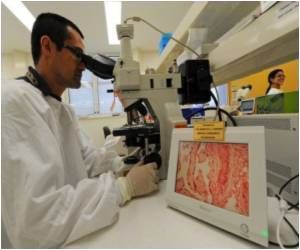
Scientists have also shown how this immune response can be re-activated to fight invading parasites, and enable the immune system to develop natural resistance to infection.
Their findings could help inform the development of vaccines for these types of infections. They also point towards potential treatments for allergies, which occur when the same part of the immune system over-reacts to irritants.
Researchers looked at a part of the immune system that responds to parasite infections, in a study of mice. They found that when infection begins, cells that would normally launch a counter-attack on the invading parasite – and in so doing, help develop immunity – become dormant.
They found that blocking the action of a tiny molecule attached to the surface of the cell reactivates the cell, and enables a fresh attack on the infection. Scientists hope to investigate the reaction further to determine whether it applies to people and animals such as livestock.
The study, published in PLOS Pathogens, was funded by the Medical Research Council and the Wellcome Trust.
Advertisement
Source-Eurekalert














